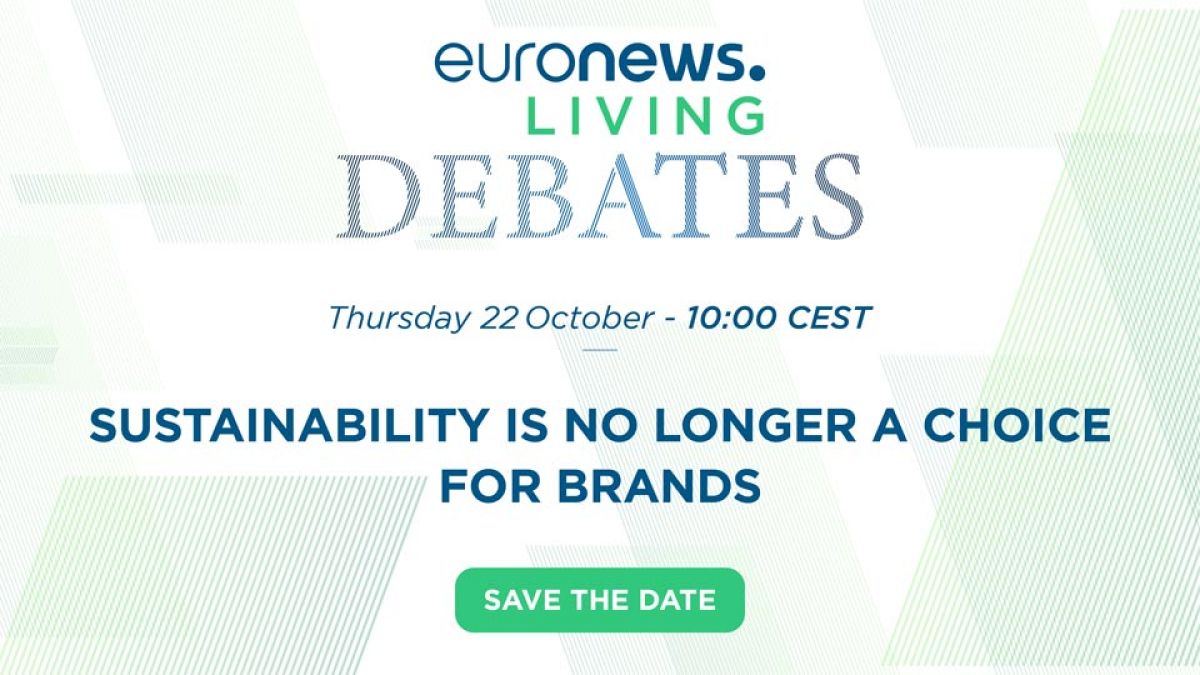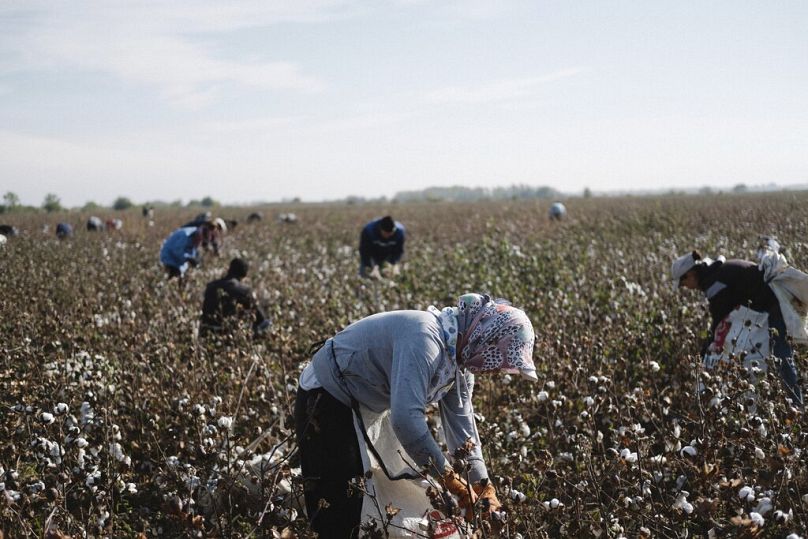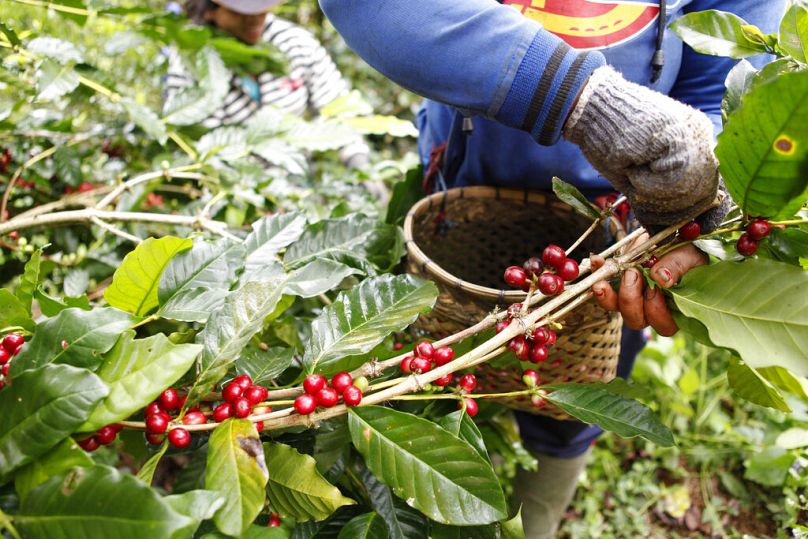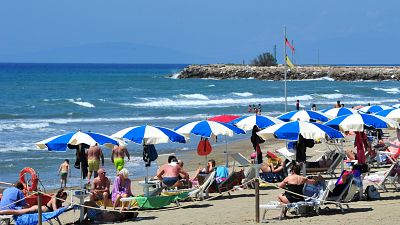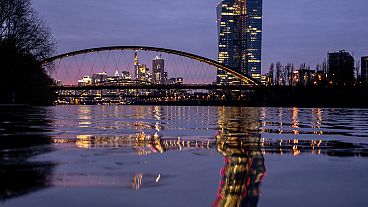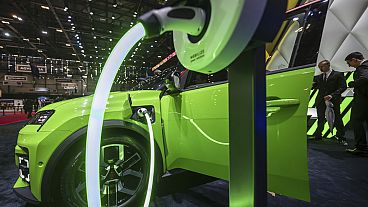While the world is rethinking what matters, some businesses have found an opportunity to reflect on their impact on the environment. In this special edition of Euronews Living Debates, we will hear from brands across a variety of sectors about their sustainability successes.
Becoming sustainable is now imperative rather than optional for businesses, as the world grapples with climate change after the coronavirus pandemic.
Businesses are waking up to the fact that environmental sustainability matters to their consumers and achieving it goes hand in hand with socio-economic sustainability. This means delving deep into the supply chains and tackling inequalities at each level.
A special Euronews debate on October 22 heard from experts across fashion, travel and coffee production whose companies are already on the journey to true sustainability. We asked what they learnt along the way, how they got there, what the biggest challenges were and how they overcame them (you can watch the full debate in the video player, above).
“We don’t always think when we wear clothes and we have luxury that everything we use actually comes from nature,” said Michael Beutler, sustainability operations director at luxury fashion brand, Kering. For him, becoming sustainable is about assessing each stage of the supply chain and asking: “what is our relationship with natural resources and how can we use them in the wisest way?”
Kering owns a number of luxury brands with the likes of Balenciaga, Gucci and Saint Laurent amongst them. In 2011, they were the first company to measure their entire carbon footprint, taking into account water and land usage, greenhouse gas emissions, and waste. They’ve set an ambitious target of reducing their carbon footprint by 40 per cent by 2025.
As a fashion industry, the majority of carbon emissions in Kering are produced during the sourcing and manufacturing stages, with stores and operations only accounting for 5 per cent of their entire carbon footprint. Beutler said that addressing the supply chain and source of materials is their biggest challenge and focus.
“It’s about looking at ways to create the luxury experience in a way that is environmentally as minimalist as possible,” Beutler told Euronews. In some instances, this involves returning to old-fashioned methods of farming such as regenerative agriculture, which focusses on keeping the soil alive through composting, keeping the carbon in the soil and promoting biodiversity, as well as working with farmers on best practices. This comes in addition to exploring innovative materials and ways to lengthen the life of products.
In short, “the better we are to nature, the better nature is to us” said Beutler.
Tackling inequalities in the supply chain
“Everybody should wake up every morning with the idea of doing something for a better world – not only saving water etc but also solving inequalities,” said Mario Cerutti, chief sustainability officer, Lavazza Foundation.
Starting in the late 1990s, the Lavazza Foundation was formed at a time when "sustainability was not even a word" according to Cerutti. The project began as a means of quality control and getting to know the producers in the coffee community.
Since then, Cerutti said that climate change has already had a noticeable impact on coffee plantations, which has resulted in more coffee growers having to move to more suitable land due to changes in temperature.
Around two-thirds of the coffee growing community (20-25 million people) is made up of small land-owners. The Lavazza Foundation began with supporting three coffee-growing communities in Central and South America by building better infrastructure for coffee drying as well as providing housing and schools. Cerutti stressed the importance of supporting all stakeholders in the coffee industry by communicating and asking them what is important.
Is over-consumption fuelling climate change?
Nicolas Dubreuil, polar & tropical expedition expert & director of sustainability at Ponant joined Mario in stressing the importance of socio-economic sustainability when tackling climate change.
Ponant, which is a luxury cruise company, were able to reduce their CO2 emissions by 95 per cent after switching to a low-sulphur fuel. “Managing nature is quite easy. But social impact assessment with the community is much more difficult” he said on Thursday.
"We have to use the best technology we can. No question. But we have to change our practise, and that’s the key. And that’s something, that maybe is not so easy, but that we have to do. Change our practise, for example - reducing our speed from 30 knots to 10 knots, taking it slow – that will reduce amazingly the carbon emission.”
Dubreuil stressed the importance of meaningful travel: “I really strongly think that we should travel less, but we should travel better," he added.
“Before going on a cruise, I go five, sometimes more, years before to check with the local community” explained Dubreuil. He said he talks to the local community about what they want to share with guests rather than having pre-conceived expectations.
“What I see sometimes is - passengers are coming from big cities like Paris or New York or other countries where they have decided they can dominate nature. But when we take them in the Antarctic, you will be around 400,000 penguins, you're just in the middle, they’re just all around you. Suddenly you realise that humans are not the only ones on Earth."
“Nothing exists before you experience it” said Dubreuil, which is why he believes that travelling less often and more meaningfully is one way in which people can help climate change.
Covid-19 a 'wake-up call' for achieving sustainability?
Businesses that agree with scientists know it is critical to limit global warming to at least 2 degrees Celsius to avoid the most dangerous consequences of climate change. Kering have set themselves the target of limiting to 1.5 degrees Celsius.
But the long road to sustainability could be threatened and the need for some companies to recover financially from the crisis could stall or even reverse this progress. Beutler said:
“If anything, COVID-19’s been a bit of a wake-up call, and it’s an opportunity to raise awareness of how interconnected we all are and sort of our responsibility towards each other and towards the planet, towards society at large and society going beyond our borders.”
“COVID-19 has allowed us to see that we can make changes when we have to. And I think part of the challenge with climate change is people think ‘oh it’s out there in the future’ but it’s now.”
